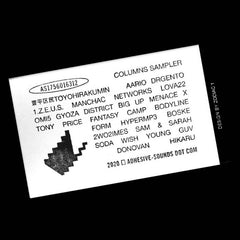Marina Herlop // Nekkuja LP
- Availability:
カタルーニャの実験ポップ作家Marina Herlopが、2024年7月にドイツ・ベルリンのPANからリリースしたレコードです。
実験ネオクラシカル・ポップ7曲を収録。
以下、レーベルによる解説です。
"カタルーニャ出身の作曲家でプロデューサーのMarina Herlopは、前作「プリピャチ」のリリースを待つ間、落ち着かない日々を送っていた。彼女は、(当時は)不確かな音楽キャリアに不安を感じ、感情的に不安定になっていた。「目を閉じて、自分が庭師になって、土の中から紫色の雑草を引き抜き、嫌な思い出や吐き出したい感情を植物に見立てていた。音楽以外の部分に注いでいたエネルギーが、彼女の創造的な牧草地に染み込み、それを毒していたのだ。彼女は、その害を克服するために何をすべきかを知っていた。種を植え、自分の芸術が再び花を咲かせ、開花するように世話をするのだ。
Nekkujaは、Herlopの最も温かく甘い感情が表層に浮き上がり、表土を突き破る場所である。彼女はこのアルバムについて、内なる光を探し求め、肯定するための方法だと語っているが、それは間違いなく彼女のこれまでで最も明るくポップな声明である。プリピャチを育んだ先進的で実験的なタッチは健在だが、暗黒とメランコリーに魅了されたシーンでは稀なポジティブさに恵まれている。Busaでは、華麗なアコースティック楽器のきらめくような断片が静謐な歓迎を与え、サウンドを抽象化とファンタジーへと向かわせる精密な電子的処理によって中断される。Herlopの歌声は、子供のような笑い声から、幾重にも重なった艶消しのマントラへと変化し、情熱的で希望に満ち、エネルギーに満ち溢れている。その活力は「Cosset」へと波及し、跳ね返るビートとドラマチックなピアノ・ロールにパワフルなモチーフを巻き付けていく。
Karadaでは、ハープのプラックと柳のようなヴォーカルにのせて、牧歌的なフィールドレコーディングが陽光のようにひび割れ、Herlopの庭がドラマチックに幕を開ける。彼女の歌声は、小川のせせらぎや鳥のさえずりに包まれて、まるで手入れされた土地そのものに向かって歌っているかのようだ。芸術家は孤高の天才であるとか、崇拝されるべき偶像であるといった見方とは対照的に、庭はそのプロセスを献身や忍耐に近いものとしてとらえるのに役立つとHerlopは考えている。庭師は屋外の野生の混沌に秩序をもたらし、自然と協力して活気に満ちた永続的なものを作り上げる。親しみやすいサウンドと空想的なコンセプトを融合させながら、Herlopは想像上の庭をなぞり、私たちにさまよい、不思議に思うよう促す。そしてアルバムの最終曲「Babel」では、剪定されたヴォーカルフレーズと繊細に手入れされたオーケストラの茂みが、オレンジ、緑、青、赤で彩られている。 "
レーベルその他作品はこちら /// Click here to see more PAN releases available at Tobira.
----------------------
12" black vinyl.
Tracklist:
1. Busa 03:39
2. Cosset 04:30
3. Karada 04:38
4. La Alhambra 05:16
5. Reina Mora 04:13
6. Interlude 00:48
7. Babel 03:27
PAN:
"While she was waiting for her last album 'Pripyat' to be released, Catalan composer and producer Marina Herlop was restless. She was concerned about her (by then) uncertain music career, and felt emotionally unmoored. "Some days I used to sit on the balcony of my flat to catch some sun,” she explains, "I would close my eyes and start visualizing myself as a gardener, pulling out purple weeds from the soil, every bad memory or emotion I wanted to expulse being one of the plants." As the days dragged on, the fantasy deepened, and Herlop discovered that parts of the garden was withering; the energy she had been putting into the non-musical side of her life had seeped into her creative pasture and poisoned it. She knew what she needed to do to overcome the blight: plant some seeds and tend to her art to help it blossom and bloom once again.
'Nekkuja' is a place for Herlop's warmest, sweetest sentiments to rise to the surface and crack through the topsoil. She describes the record as a way for her to seek and affirm inner light, and it's undoubtedly her brightest, poppiest statement to date. The forward-thinking, experimental touches that nourished 'Pripyat' are still present, but blessed with a level of positivity that's rare to find in a scene so entranced by darkness and melancholy. Skittering fragments of ornate acoustic instrumentation provide a serene welcome to 'Busa', punctuated by precise electronic processes that shuttle the sound towards abstraction and fantasy. Herlop's voice grows over the tangle of sounds from a childish giggle into a layered, matted mantra, sounding passionate, hopeful and full of energy. The vitality spills over into 'Cosset', where she wraps powerful motifs around ricocheting beats and dramatic piano rolls.
Herlop's garden opens up dramatically on 'Karada' when bucolic field recordings crack like sunlight over harp plucks and willowy vocals. Her voice seems to bend around the whooshing streams and chittering of birds as if she's singing to the manicured land itself - a utopian paradise that Herlop employs as a metaphor for the creative process. In contrast to the view that an artist is an isolated genius or an idol to be worshipped, Herlop believes that the garden helps us see the process as closer to devotion or perseverance. A gardener brings order to the wild chaos of the outdoors, collaborating with nature to arrange something vibrant and enduring. Blending familiar sounds with fanciful concepts, Herlop traces an imaginary garden, imploring us to wander and wonder. And by the album's billowing final track 'Babel', it's flowered into a flush of pruned vocal phrases and delicately groomed orchestral rushes, painted in orange, green, blue and red. "
Artist : Marina Herlop
Label : PAN
CAT No : PAN141lp
カタルーニャの実験ポップ作家Marina Herlopが、2024年7月にドイツ・ベルリンのPANからリリースしたレコードです。
実験ネオクラシカル・ポップ7曲を収録。
以下、レーベルによる解説です。
"カタルーニャ出身の作曲家でプロデューサーのMarina Herlopは、前作「プリピャチ」のリリースを待つ間、落ち着かない日々を送っていた。彼女は、(当時は)不確かな音楽キャリアに不安を感じ、感情的に不安定になっていた。「目を閉じて、自分が庭師になって、土の中から紫色の雑草を引き抜き、嫌な思い出や吐き出したい感情を植物に見立てていた。音楽以外の部分に注いでいたエネルギーが、彼女の創造的な牧草地に染み込み、それを毒していたのだ。彼女は、その害を克服するために何をすべきかを知っていた。種を植え、自分の芸術が再び花を咲かせ、開花するように世話をするのだ。
Nekkujaは、Herlopの最も温かく甘い感情が表層に浮き上がり、表土を突き破る場所である。彼女はこのアルバムについて、内なる光を探し求め、肯定するための方法だと語っているが、それは間違いなく彼女のこれまでで最も明るくポップな声明である。プリピャチを育んだ先進的で実験的なタッチは健在だが、暗黒とメランコリーに魅了されたシーンでは稀なポジティブさに恵まれている。Busaでは、華麗なアコースティック楽器のきらめくような断片が静謐な歓迎を与え、サウンドを抽象化とファンタジーへと向かわせる精密な電子的処理によって中断される。Herlopの歌声は、子供のような笑い声から、幾重にも重なった艶消しのマントラへと変化し、情熱的で希望に満ち、エネルギーに満ち溢れている。その活力は「Cosset」へと波及し、跳ね返るビートとドラマチックなピアノ・ロールにパワフルなモチーフを巻き付けていく。
Karadaでは、ハープのプラックと柳のようなヴォーカルにのせて、牧歌的なフィールドレコーディングが陽光のようにひび割れ、Herlopの庭がドラマチックに幕を開ける。彼女の歌声は、小川のせせらぎや鳥のさえずりに包まれて、まるで手入れされた土地そのものに向かって歌っているかのようだ。芸術家は孤高の天才であるとか、崇拝されるべき偶像であるといった見方とは対照的に、庭はそのプロセスを献身や忍耐に近いものとしてとらえるのに役立つとHerlopは考えている。庭師は屋外の野生の混沌に秩序をもたらし、自然と協力して活気に満ちた永続的なものを作り上げる。親しみやすいサウンドと空想的なコンセプトを融合させながら、Herlopは想像上の庭をなぞり、私たちにさまよい、不思議に思うよう促す。そしてアルバムの最終曲「Babel」では、剪定されたヴォーカルフレーズと繊細に手入れされたオーケストラの茂みが、オレンジ、緑、青、赤で彩られている。 "
レーベルその他作品はこちら /// Click here to see more PAN releases available at Tobira.
----------------------
12" black vinyl.
Tracklist:
1. Busa 03:39
2. Cosset 04:30
3. Karada 04:38
4. La Alhambra 05:16
5. Reina Mora 04:13
6. Interlude 00:48
7. Babel 03:27
PAN:
"While she was waiting for her last album 'Pripyat' to be released, Catalan composer and producer Marina Herlop was restless. She was concerned about her (by then) uncertain music career, and felt emotionally unmoored. "Some days I used to sit on the balcony of my flat to catch some sun,” she explains, "I would close my eyes and start visualizing myself as a gardener, pulling out purple weeds from the soil, every bad memory or emotion I wanted to expulse being one of the plants." As the days dragged on, the fantasy deepened, and Herlop discovered that parts of the garden was withering; the energy she had been putting into the non-musical side of her life had seeped into her creative pasture and poisoned it. She knew what she needed to do to overcome the blight: plant some seeds and tend to her art to help it blossom and bloom once again.
'Nekkuja' is a place for Herlop's warmest, sweetest sentiments to rise to the surface and crack through the topsoil. She describes the record as a way for her to seek and affirm inner light, and it's undoubtedly her brightest, poppiest statement to date. The forward-thinking, experimental touches that nourished 'Pripyat' are still present, but blessed with a level of positivity that's rare to find in a scene so entranced by darkness and melancholy. Skittering fragments of ornate acoustic instrumentation provide a serene welcome to 'Busa', punctuated by precise electronic processes that shuttle the sound towards abstraction and fantasy. Herlop's voice grows over the tangle of sounds from a childish giggle into a layered, matted mantra, sounding passionate, hopeful and full of energy. The vitality spills over into 'Cosset', where she wraps powerful motifs around ricocheting beats and dramatic piano rolls.
Herlop's garden opens up dramatically on 'Karada' when bucolic field recordings crack like sunlight over harp plucks and willowy vocals. Her voice seems to bend around the whooshing streams and chittering of birds as if she's singing to the manicured land itself - a utopian paradise that Herlop employs as a metaphor for the creative process. In contrast to the view that an artist is an isolated genius or an idol to be worshipped, Herlop believes that the garden helps us see the process as closer to devotion or perseverance. A gardener brings order to the wild chaos of the outdoors, collaborating with nature to arrange something vibrant and enduring. Blending familiar sounds with fanciful concepts, Herlop traces an imaginary garden, imploring us to wander and wonder. And by the album's billowing final track 'Babel', it's flowered into a flush of pruned vocal phrases and delicately groomed orchestral rushes, painted in orange, green, blue and red. "
Artist : Marina Herlop
Label : PAN
CAT No : PAN141lp
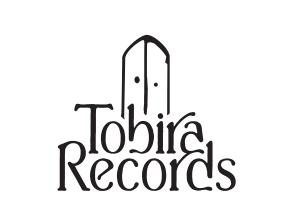
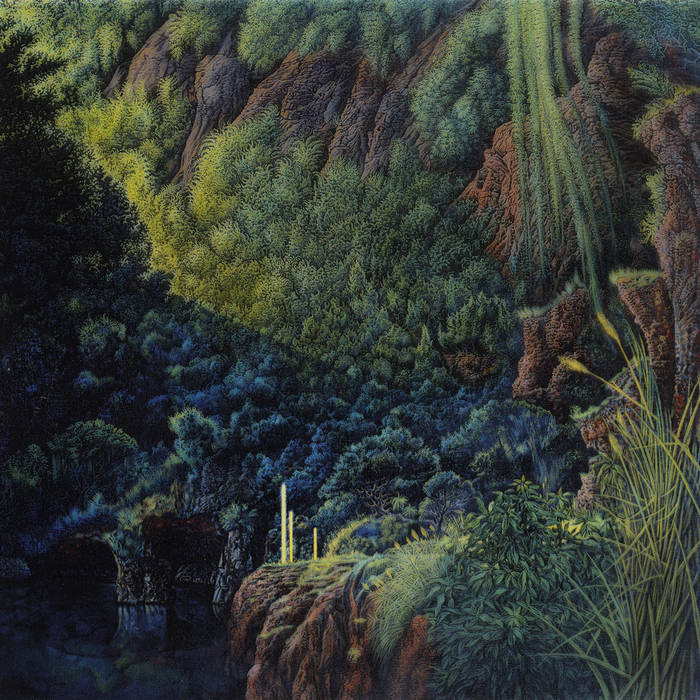
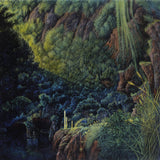
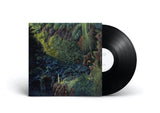
![U.e. // Hometown Girl LP [COLOR]](http://tobirarecords.com/cdn/shop/files/image_1_993db67f-8538-4ca1-944b-09f8cde66b27_medium.jpg?v=1738276455)
